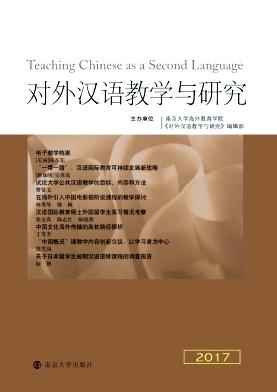EFL Learners’ Modified Output and their Perceptions of Recast during Face-to-Face, Audio-based and Video-based Synchronous Mobile-mediated Communication
引用次数: 0
Abstract
Taking into account the facilitative role of mobile-mediated communication for promoting EFL learners’ L2 development, this study investigated Iranian EFL learners’ perceptions of recast and their modified output through face-to-face, audio, and video-based mobile-mediated communication. To this end, sixty intermediate EFL learners at two different language institutes were selected. They were randomly assigned into three groups namely, face-to-face, audio- and video-based conditions. During mobile-mediated interactions in three sessions, the participants received recasts for their errors, and then listened to the recorded episodes of their incorrect utterances followed by interlocutors’ feedback via stimulated recall interviews. Afterwards, learners’ stimulated recall interviews were collected in relation to learners’ perceptions of recasts they received. The results of Chi-Square analysis revealed that the audio-based group had more accurate perceptions of recasts provided to them compared to the other two groups. Moreover, the analysis of learners’ modified output indicated no statistical significance among the three groups. The study concluded that mobile-delivered recasts can be considered as noticeable to EFL learners as the conventional face-to-face ones.在面对面、基于音频和视频的同步移动媒介交流中,英语学习者的修改输出及其重铸感知
考虑到移动媒介交流对促进英语学习者第二语言发展的促进作用,本研究调查了伊朗英语学习者通过面对面、音频和视频移动媒介交流对英语复述的看法及其修改后的输出。为此,我们选择了来自两所不同语言学院的60名中级英语学习者。他们被随机分为三组,分别是面对面、音频和视频。在三个以手机为媒介的互动过程中,参与者接受了错误的重播,然后听取了他们错误话语的录音片段,然后通过刺激回忆访谈听取了对话者的反馈。然后,收集学习者的刺激回忆访谈,以了解学习者对他们收到的重铸的感知。卡方分析的结果显示,与其他两组相比,基于音频的组对提供给他们的重铸有更准确的感知。此外,对三组学习者修改输出的分析也没有统计学意义。该研究得出的结论是,对于英语学习者来说,手机语音复述与传统的面对面语音复述一样引人注目。
本文章由计算机程序翻译,如有差异,请以英文原文为准。
求助全文
约1分钟内获得全文
求助全文

 求助内容:
求助内容: 应助结果提醒方式:
应助结果提醒方式:


